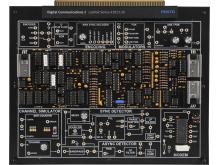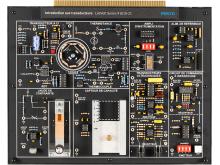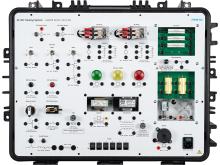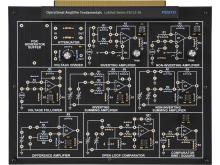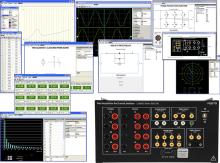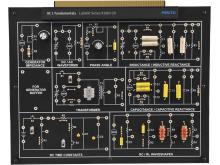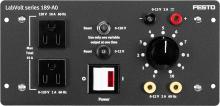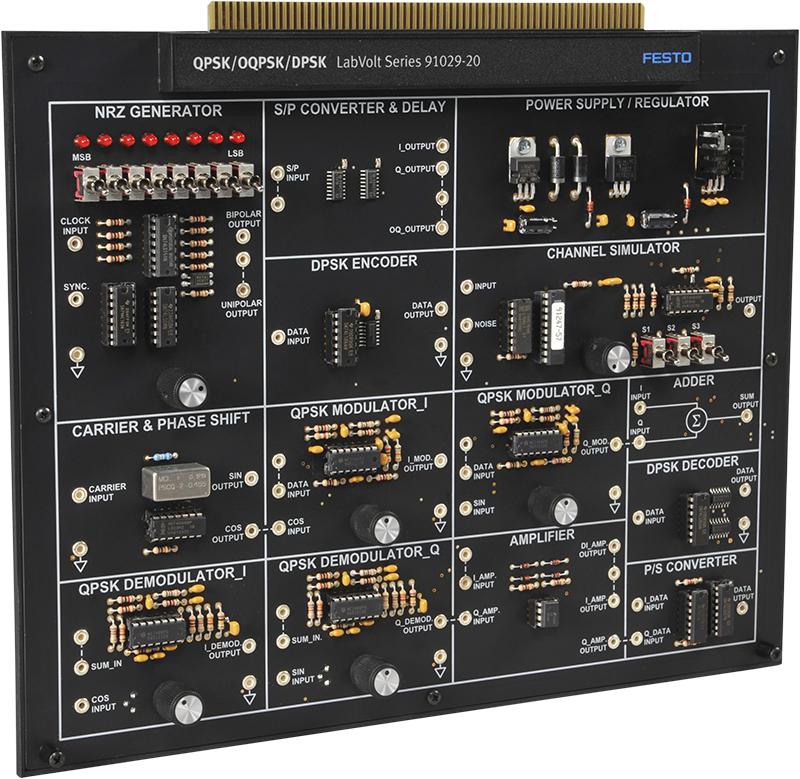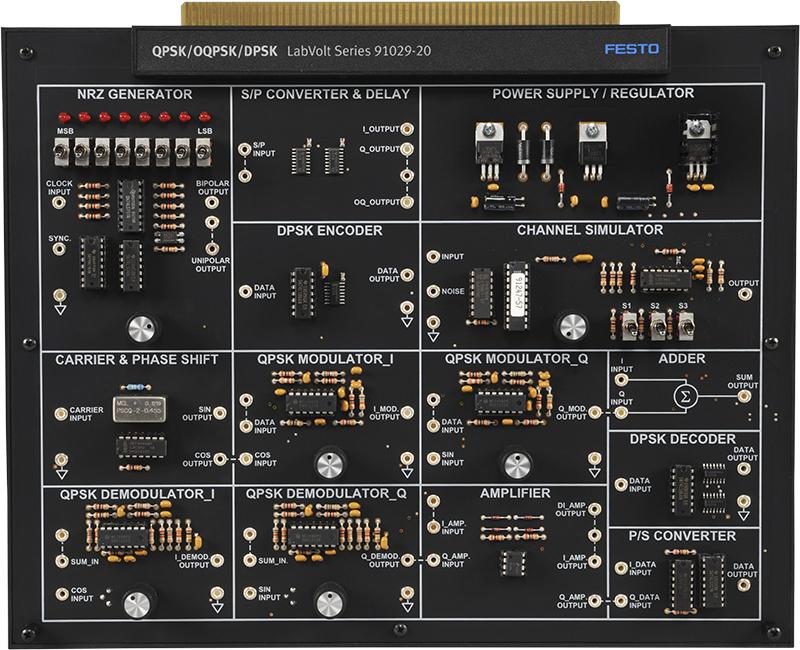QPSK/OQPSK/DPSK FACET Board
91029-2Gallery
Description
Phase-shift keying (PSK) is a method of digital communication in which the phase of a transmitted signal is varied to convey information.
The QPSK/OQPSK/DPSK circuit board provides students with the theory and measurement skills required to implement and test different types of PSK modulation and demodulation techniques used in pulse-coded modulation (PCM) schemes.
The student first learns the principles and operational characteristics of unipolar and bipolar signals in a baseband transmission. Next, the student measures and compares BPSK, QPSK, OQPSK, and DPSK signals in the time and frequency domains using an oscilloscope and spectrum analyzer, respectively. Lastly, the student will become familiar with all components of the board; will be able to isolate, identify and test a series of circuits; and will perform troubleshooting exercises to demonstrate mastery of the course objectives.
The circuits found on this board include:
- NRZ Generator
- S/P Converter & Delay
- DPSK Encoder
- Power Supply/Regulator
- Channel Simulator
- Carrier & Phase Shift
- QPSK Modulator_I
- QPSK Modulator_Q
- Adder
- DPSK Decoder
- QPSK Demodulator_I
- QPSK Demodulator_Q
- Amplifier
- P/S Converter
Features & Benefits
- Communication signals are synchronized for easy display
- Digital signals observed in both time and frequency domains
- Courseware interfaces with the Virtual Instrument, Model 1250
- Built-in adjustable NRZ GENERATOR provides various bit pattern streams
- Adjustable bandwidth channel simulator
Topic Coverage
- Digital modulation
- Baseband signals, Passband signals
- Partitioning of pulse streams
- Signal constellations for MPSK, General Equations
- Heterodyning baseband signals with a carrier
- Unipolar and bipolar signals in time domain and in the frequency domain
- Binary PSK (BPSK), Quadratic PSK (QPSK), Offset QPSK (OQPSK), Differential PSK (DPSK) modulation and demodulation
Downloads
Product Fixes
FACET Vol. 29: 5.00.01 to 5.00.02

